According to a study by Veolar, Vancouver, along with other cities, has been ranked as one of the best places in the world to retire. And while the study takes into consideration a range of factors for the retirement index, including the likes of healthcare and life expectancy, crime rate, and more, the West Coast city of Canada managed to tick all the right boxes. If you are a senior who’s on the verge of drawing an ending line to your professional life and eyeing to retire in Vancouver, you are looking at the right place.
7 Best Places to Retire and Live in Vancouver: 2022
Read on to find out more as we take a closer dig at the best places to retire in Vancouver.
1. Downtown Centre
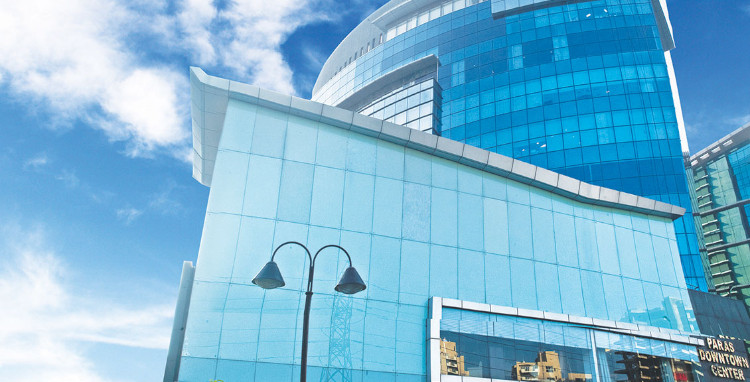
View this. A day where clouds play foul with your view and stop you from seeing the mountains. That is precisely what Downtown Center looks like when compared to other cities in Canada. At its very heart, it’s got a whole bunch of business towers, big hotels and restaurants, and traffic bustling all day and night. If you envision living in a happening environment amidst all modern amenities, and regular needs at a stone’s throw distance, this is the place to be.
- Monthly Rent: $2,295-$10.5
- Property Purchase Cost:$68,000 to $33,888,000
- Cost of Living: 969$ (1,308C$) monthly for single living minus rent, that’s 26.65% less costly than New York.
- Health and Safety: Despite high personal safety standards, this place witnesses property crimes from time to time, like car break-ins. Other than that, it’s a pretty safe neighborhood. Vancouver, similar to major cities in North America, has a good lineup of medical facilities that range from private physicians to hospitals and emergency rooms. Extremely handy are walk-in clinics, urgent care clinics, and emergency services.
- Connectivity: Located at the center of Vancouver, it’s pretty much connected to all parts of the city
- Traffic: Medium-high
- Public Transport Facilities: Vancouver’s public transportation owes it all to the Translink system which includes buses, the SeaBus ferry, and the SkyTrain (light rail), all very ecological, inexpensive, and reliable ways to get around.
2. Gastown
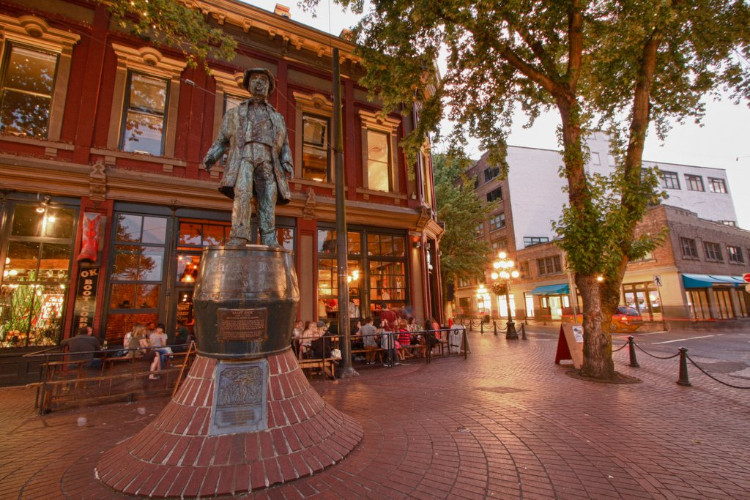
Less of a neighborhood and more of a quarter, Gastown is certainly the most historic of all places in Vancouver. The first thing to catch your eyes will be the old buildings; there are way too many of them here. And a lot of them belong to work-at-home artists as well as designers and their pets living in harmony.
Despite the number of buildings, you might have to spend a little bit of extra time to find a suitable apartment here as most of them are reserved. Also, Gasstwon is one lovely place if you are an art enthusiast as art galleries and souvenir shops are on a spree here and not to mention a handful of best pubs in Canada and restaurants located in proximity.
- Monthly Rent: Can be as low as $725
- Property Purchase Cost: Starts at $1,049,000
- Cost of Living: $1,700-$2,200 per month for a two-bedroom condo
- Health and Safety: Gastown is overall pretty safe to visit alone or with family. However, for first-time solo travelers, it is always recommended to not indulge in heavy drinking or gambling at night and ensure picking up staying in well-populated areas.
- Connectivity: Gastown is very well connected to all parts of the city
- Traffic: Medium-high
- Public Transport Facilities: The Translink system has everything you need; buses, ferry, and light rail, which are all inexpensive options to travel.
3. Kitsilano
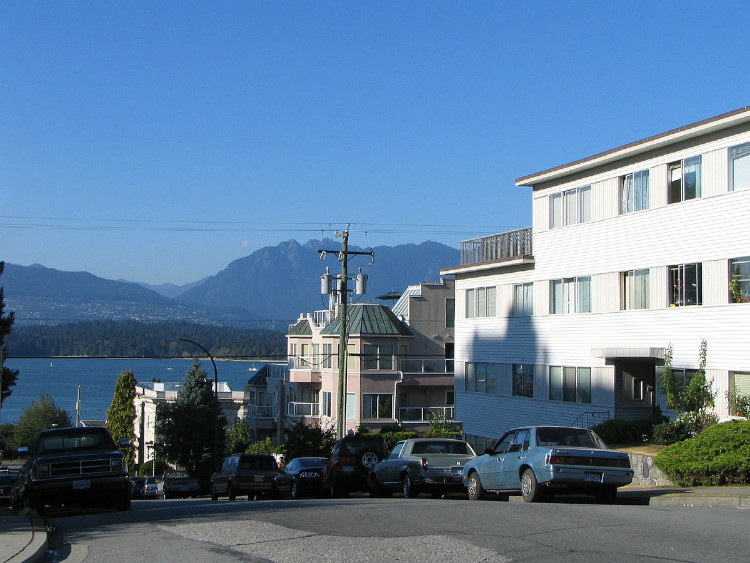
If you are looking to retire somewhere that gives out exactly the same vibe as that of California beaches, Kitsilano is the place to be. People here belong to the stylised, sophisticated community. They go to the gym and spas, take care of themselves, wear fancy clothes, and love to dine out.
- Monthly Rent: A 1-bedroom apartment in Kitsilano would cost you around $2,400, which is up by 34 percent since last year.
- Property Purchase Cost: $515,000-$17,800,000
- Cost of Living: The average rent for a 1-bedroom apartment stands at $2,400 and a 2-bedroom apartment is $4,400
- Health and Safety: High personal safety and primary healthcare options are all available at every block.
- Connectivity: Well connected to the central part of town.
- Traffic: Medium-high
- Public Transport Facilities: The Translink system has everything you need; buses, ferry, and light rail, which are all inexpensive options to travel.
4. Mount Pleasant
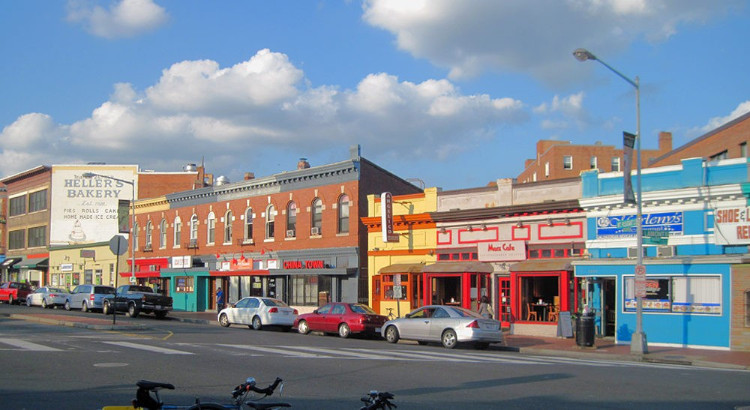
Undoubtedly, Mount Pleasant has reached what one can refer to as the second stage of the “global hipster neighborhood development scale”.
While in the first stage, we had the original hipsters making their way through downtrodden neighborhoods, setting up vegan eating joints, vintage shops, cafes, and breweries, the second stage is where they have toned things down a bit. These are essentially those who are well off, on the monetary side to actually be hipsters and eventually push the prices. Naturally, Mount Pleasant has become one of the go-to- places and certainly a different kind for people to retire.
- Monthly Rent: Between $2,200-$3,525
- Property Purchase Cost: The average house price starts at $898,522 and above.
- Cost of Living: An average of $45,843 (monthly) in earnings
- Health and Safety: Mount Pleasant is a fairly safe place and also has some of the best hospitals of Vancouver located.
- Connectivity: Well connected to the central part of the city
- Traffic: Medium-high
- Public Transport Facilities: The Translink system has everything you need; buses, ferry, and light rail, which are all inexpensive options to travel.
5. The West End
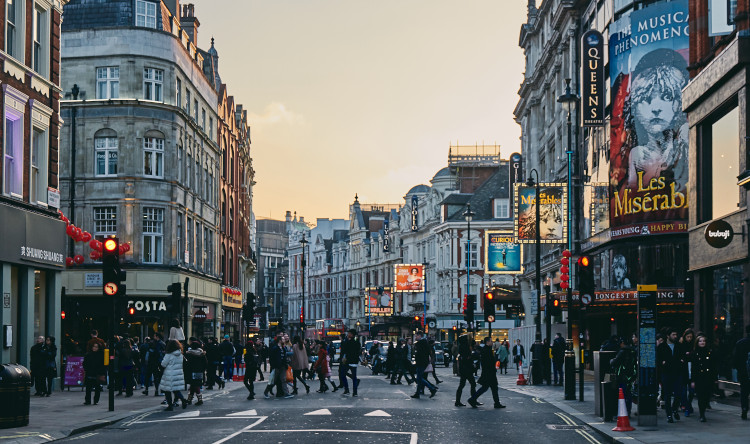
Often confused with Vancouver’s West Side, which is the residential neighborhood right between Main St. and UBC) and also West Vancouver, which is actually the suburbs by the mountains, the West End is a one-of-a-kind, dense neighborhood.
And what makes the West End strike a different stance is its low-key profile, something that it has been able to hold on to for no less than thirty years while the rest of the downtown has changed itself. While that takes away the plush feeling, it also comes with advantages like low-cost living, which is a great factor to consider when you are looking to retire here.
- Monthly Rent: Starts as low as $2,495 per month
- Property Purchase Cost: On an average between $72,000 to $23,800,000
- Cost of Living: The average rent for a 1-bedroom apartment in West End, Vancouver, BC is currently $2,550. Perhaps one of the most affordable places among all Downtown locations.
- Health and Safety: Quiet and safe neighborhood with a good network of hospitals, primary care clinics and community health centers
- Connectivity: Well connected to the central part of the city and an absolute walkers and bikers paradise
- Traffic: Medium-high
- Public Transport Facilities: The Translink system has everything you need; buses, ferry, and light rail, which are all inexpensive options to travel.
6. Yaletown
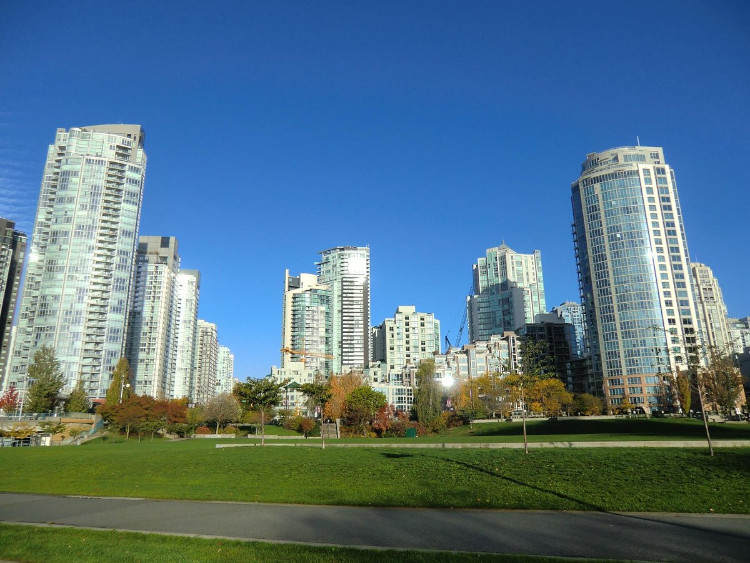
Come-of-age studios, parlors, restaurants and smoothie bars, therapy centers-Yaletown, are as cool as its name. Once bustling with warehouse buildings that are now home to plush cocktail lounges with outdoor terraces with bespoke decor, Yaletown is one settlement that sets its own rhythm among the hustle and hustle of community living. On the waterfront, there’s the David Lam Park with a super expansive playground and lawn, and then there’s the Seawall which is a favorite spot for walking and cycling. Also, not to miss out Rogers Area and BC place stadium, the ultimate place for rock concerts and sports.
- Monthly Rent: Starts around $3800 and some listings are even cheaper
- Property Purchase Cost: Average house price rests at $903,780
- Cost of Living: A typical two-bed condo, in, say, a high-rise apartment, will typically cost around $2,500 per month.
- Health and Safety: Despite resting between two of Downtown Vancouver’s notoriously reputed neighborhoods, Yaletown witnesses heavy patrolling, and thus is considered to be a safe location
- Connectivity: Yaletown is well connected to all parts of the city
- Traffic: Low-medium
- Public Transport Facilities: Vancouver’s public transportation owes it all to the Translink system which includes buses, the SeaBus ferry, and the SkyTrain (light rail), all very ecological, inexpensive, and reliable ways to get around.
7. Commercial Drive
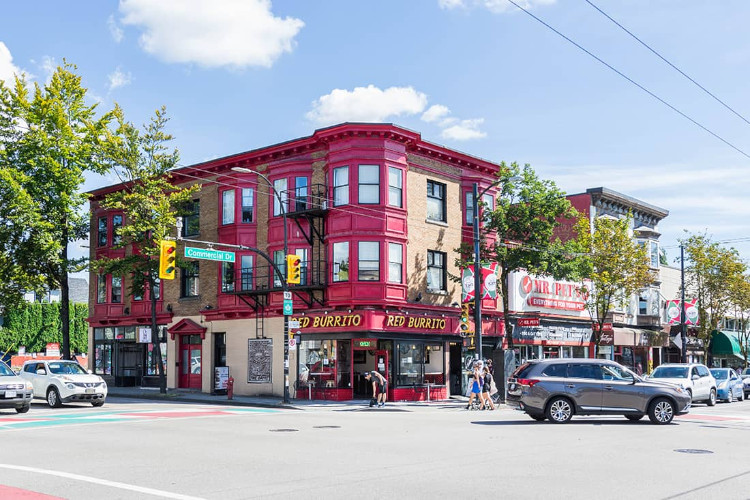
Don’t get fooled by the name, as Commercial drive has nothing to do with being “commercial”. This is one place where the community has been true to its roots, like nowhere else in comparison.
With over 22 full blocks that are home to no less than 300 merchants at least, Commercial Drive offers an eclectic mix of boutiques, restaurants, live music, dancing, coffee bars, food stores as well bakeries. For anyone wanting to spend his retired life here, it’s sure to be a one-of-a-kind experience.
- Monthly Rent: Can be as low as $1,700
- Property Purchase Cost: Average listed price rests at around $1,596,445
- Cost of Living: For a family of four per month, it is estimated around 4,4100 C$ minus the rent
- Health and Safety: Commercial Drive is among the safest neighborhoods of Vancouver that also comes with good number of clinics and hospitals in proximity
- Connectivity: Well connected to all parts of the city. Starting from Adanac and Commercial, there is the “No. 20 Downtown” bus that takes people straight to downtown Vancouver, via the downtown eastside.
- Traffic: Medium-high
- Public Transport Facilities: Vancouver’s public transportation owes it all to the Translink system which includes buses, the SeaBus ferry, and the SkyTrain (light rail), all very ecological, inexpensive, and reliable ways to get around.
Cost to Retire in Vancouver
According to the 2019 Survey of Household Spending by Stats Canada, the average consumer spending per household for natives aged 65 and above rests at $68,980 (this excludes taxes, pension payments, insurance, and gifts).
Sure, there are certain rules to simplify things, but it all has to do with the situation that you are in. However, it’s always a wise call to go by the rules, and it will help you bulk up your savings which is the primary constraint of retired life.
Following the 50/30/20 rule can make life easy
While looking for the best places to live in Vancouver, the 50/30/20 rule can be a good way to maintain your savings for retirement. It’s simple! You use fifty percent of the money on primary needs like food, housing, and thirty percent on leisure stuff like entertainment or travel, and another twenty percent you keep towards savings.
Now, one might as well ask? Is twenty percent enough for savings? Perhaps not, if you are still young and want to bulk up, have plans to open up a new business, or invest elsewhere. However, for a retired lie, twenty percent should be just about enough to cover your expenses. Here’s simple math you can do yourself.
Say you invest all your earnings at no less than a 4% rate of return. So, a savings habit for over forty years with minimum taxes that would help keep up a simple, well-to-do life will give you maximum leverage towards both TFSA and RRSP accounts.
Places to retire in Vancouver: What’s Good and what’s not
Truth be told, retiring in Vancouver can be a mixed blessing, especially if you have been living in a different country altogether. Here’s a look at how things taste on both fronts:
What’s Good:
- It’s heaven for sports and outdoor activity enthusiasts.
- Accommodation is of international standards
- Free universal healthcare
- Safe neighborhoods
What’s Bad:
- Vancouver housing can be quite expensive, depending on the individual’s needs.
- Also, Vancouver witnesses cloudy days and rain for the most part of the year, compared to other parts of Canada. If you have a medical condition like arthritis or asthma, things can be a bit tricky.
The Bottom Line: Wrap Up
Undoubtedly, for some of the best places to retire in Vancouver, this town has a lot to offer. Especially, for families that still want to be in a big city and enjoy the bounties of nature as well, Vancouver has plenty to keep you occupied.
You see, retirement life doesn’t have to be boring, and Canada is one such country that opens up several opportunities to people in the second innings of their lives. As a country, there’s widespread recognition in terms of art and culture, so just in case you want to inculcate a hobby during your retirement and want to make it happen, there’s certainly no stopping you. And, despite Vancouver housing being one of the most expensive, it still ranks as the 8th best in the world (MoneySense, 2017 survey)
So, no matter who you are or how you want to spend your retired life in Vancouver, it’s recommended to take a wise pick by taking into consideration your personal needs. While many people will give primary importance to where their near and dear ones live, there can be other determining factors, like healthcare, which is all the way more essential when aging. Vancouver has some of the best homecare services besides primary healthcare and can be easily trusted as one of the best places to lead your retirement life in bliss.